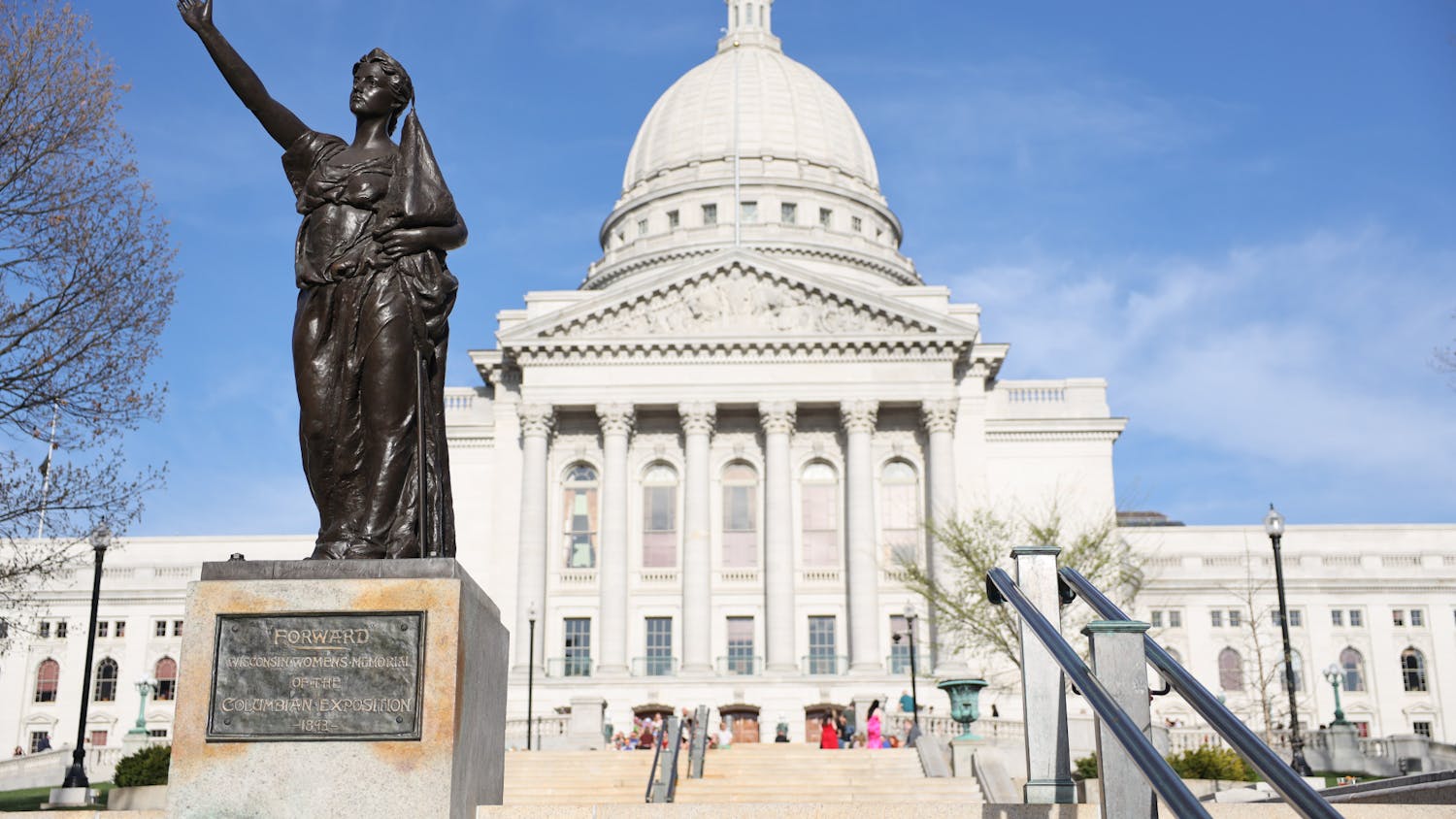In a speech at the Capitol Wednesday, Secretary of State Mike Pompeo warned Wisconsin state legislators about the potential dangers of the Chinese Communist Party’s growing influence in the country.
Pompeo’s visit is the second of three visits that Trump administration officials will make in Wisconsin this week — U.S. Attorney General William Barr was in Milwaukee on Tuesday, and Vice President Mike Pence will make an appearance in Eau Claire on Thursday, after Trump himself was in the state last week.
State Democrats condemned Pompeo’s appearance, calling out Republicans for using the state capitol as a “prop.”
Sen. Chris Larsen, D-Milwaukee, called the stop “a campaign speech disguised as a foreign policy address.”
“Pompeo used our senate chamber as a prop to attack the Chinese government, blaming them for America’s failure to contain COVID-19,” he said in a statement. “Despite Republicans’ refusal to meet and pass any legislation since April 15th.”
However, Pompeo said the stop was about “principles” and had nothing to do with party lines and upcoming elections, warning legislators of Chinese theft of intellectual property on college campuses, along with the state's investment into Chinese companies.
“The Wisconsin Retirement System is invested in China Mobile and China Telecom, both are state-owned giants and they're an integral part of a Chinese Orwellian surveillance system," he said. "Do you want your teachers, your firefighters, your policemen invested in those kinds of activities?”
Pompeo’s speech comes after Chinese officials earlier this year proposed a draft resolution to Wisconsin Senate President Roger Roth, R-Appleton, which praised China’s response to the coronavirus pandemic.
Pompeo driving policy
President Trump has ramped up his rhetoric against China in the past year — starting the year with talks about extreme tariffs on American goods and continuing his anti-China rhetoric in press conferences and in campaign ads.
However, experts like University of Wisconsin Political Science professor Edward Friedman see the attacks as politically motivated rather than policy.
“It seems that [Trump] concluded that it serves his interest to bang away at China,” Friedman said. “Essentially, China is Trump’s electoral whipping boy.”
Instead Friedman says Pompeo himself increasingly has been dictating American foreign policy.
In recent months, Pompeo has waged a war of words with the Chinese Communist Party, giving speeches across the country similar to the one he gave to Wisconsin lawmakers Wednesday. He has made it clear American businesses can no longer look to China as a regular business partner, as well as blacklisting Chinese leaders and entities “abusing the most basic rights of people around the world.”
Some have translated the speeches as a call for a regime change in China; however, it’s unclear what effect the Trump administrations rhetoric will have in the future. Friedman said that experts cannot predict what will happen down the road.
“The Chinese government still has to figure out what they’re going to do themselves,” Friedman said.
Changing approach to trade
China began its rise to international power in 1972, when President Nixon visited the country and decided to open up trade pathways between the two nations, hoping that US dollars flowing into China would create a more liberal society.
Now, nearly 50 years into America’s trade experiment, that still hasn’t happened yet, and experts agree America’s approach won’t kick start a revolution against communism in China. Recent events in Hong Kong coupled with its treatment of Uighur Muslims have shown the CCP’s continued authoritarian power, while Friedman says countries like America and Germany are becoming increasingly worried about their citizens’ intellectual property being stolen by the party.
In a question and answer session after Pompeo’s speech, the secretary said U.S. officials are fundamentally rethinking trade policy with China in response, noting that increased trade would just “fuel the fire.”
“We have to use the power of the United States to demand fair and reciprocal relationships in every dimension,” he said. “We want a relationship where one nation doesn’t threaten the other's livelihood.”
China’s expanding influence
Although China has been active on a global scale for roughly 50 years since the Nixon administration's actions, the CPP has been more aggressive since President Xi Jinping took office in 2012.
The goal of the CCP’s foreign policy is to build a world where global leaders support Chinese interests, according Friedman.
“[The CCP] works very hard to get leaders all over the world — not just in America — to be supportive of the policies and behavior of the Chinese government,” he said. “They virtually control the UN Human Rights Council, which is why they don’t criticize the current genocide against Uighurs in the country.”
But, Friedman said America isn’t the CCP’s top target or nearly as vulnerable as it may seem, due to the United States’ international power and technology.
“The real nations that are in trouble are weaker states that have trade surpluses like Australia,” he said. “[The CCP] wants our advanced technology, but they can't do much to the United States compared to what they can do to other other countries.”






